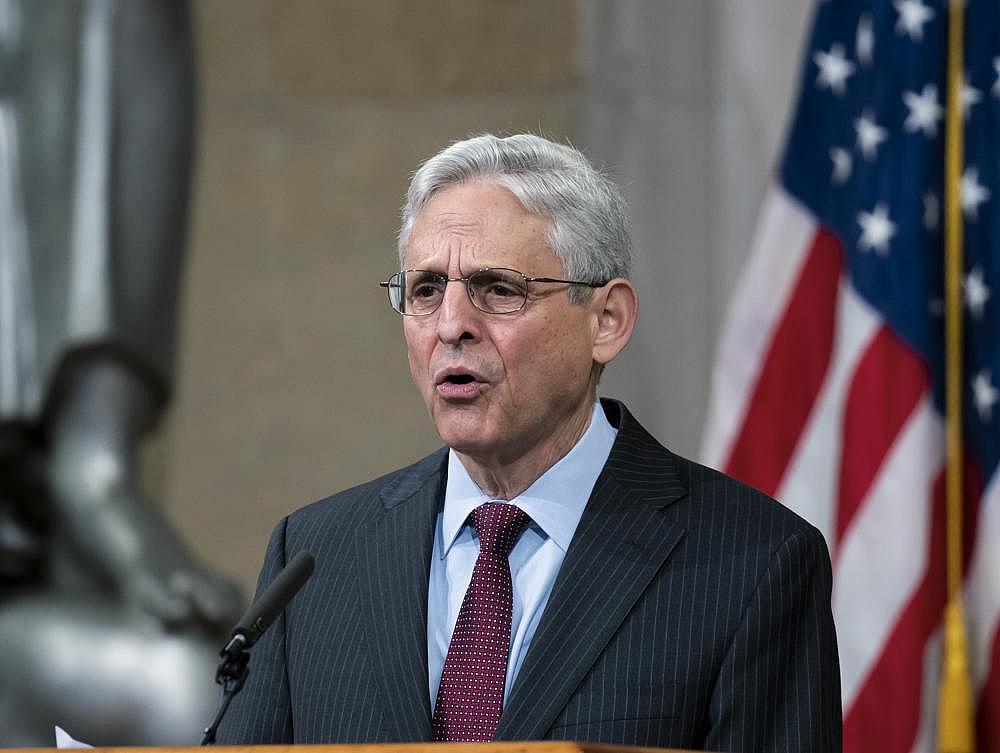The U.S. Department of Justice (DOJ) is mulling over whether it will seek the death penalty in the federal hate crimes case against the Buffalo suspect accused of murdering 10 African Americans in a racially-motivated mass shooting inside of a local supermarket.

Attorney General Merrick Garland has not officially decided on the death penalty, but the topic has become a conundrum for the nation’s top prosecutor. According to The Washington Post, some survivors and victims’ families expressed in a private meeting with Garland that they support capital punishment for 18-year-old Payton Gendron.
However, pursuing the death penalty would go against the department’s current stance on capital punishment. Last summer, Attorney General Garland announced a moratorium on federal executions. The decision came after racial equity concerns were expressed by civil rights groups following the Trump administration’s carrying out 13 executions in his last six months in office, The Post reported. Garland said his office would review the policies of Trump’s DOJ before moving forward with any federal executions.
Civil rights leaders have long expressed their opposition to the death penalty because of the disproportionate number of Black and brown inmates on death row, as well as a number of incarcerated people of color being exonerated as a result of DNA evidence proving their innocence. Two of the most prominent leaders who oppose the death penalty are the Rev. Al Sharpton and attorney Ben Crump. For them, it’s a matter of racial equity and morality.

“This is a moral and civil rights issue,” Sharpton told The Post. “You can’t have case-by-case morality. You can’t have transactional morality. You have to have transformative morality.”
Crump, who is representing some of the Buffalo shooting victims’ families, told The Post that while he does not personally support the death penalty, he will defer to the wishes of the families involved.
“That was not my mother or father or son or daughter who was killed, so I would have to respect their wishes,” said Crump. “But I will be honest with them in terms of my opposition to the death penalty.”
There is data that highlight the racial equity component of the DOJ’s stance against federal executions. A report from the Death Penalty Information Center found that in addition to Black and brown people being overrepresented on death row, killers of white people are more likely to face the death penalty than the killers of Black people.
While there are concerns about the racial implications of resuming federal executions, attorney John Elmore — who represents the family of one of the Buffalo shooting victims — signaled that Garland was very empathetic to the feelings expressed by the families in their private meeting.

“It appeared to us that he could feel the victims’ pain, and that it’s going to be a tough decision for him,” Elmore told The Post.
Elmore also noted that the families have not yet had the chance to thoroughly consider the death penalty because they are still in a state of grief.
“But this is a case where this guy, Gendron, showed no remorse, and he had a long effort in planning and scoping out multiple sites,” he said. “White supremacy is a significant danger to our country. So deciding what they’re going to do will not be a quick decision.”
U.S. officials told The Post that a decision on the matter could take as much as a year or more.
TheGrio is FREE on your TV via Apple TV, Amazon Fire, Roku and Android TV. Also, please download theGrio mobile apps today!

